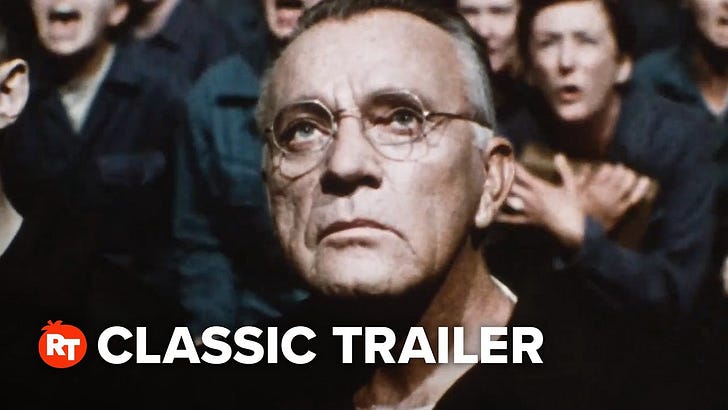Is this the start of the novel by George Orwell, “1984?”
Jonathan Rauch's "The Constitution of Knowledge: A Defense of Truth" argues that human progress in accumulating knowledge is due to a "Constitution of Knowledge," a robust social system for discerning truth from falsehood. He posits that this "constitution" operates similarly to a political constitution, providing a framework for resolving disputes and advancing understanding through open and peaceful contestation of ideas.
Defending Truth in a Confusing Age
When I was a boy growing up in New York City, there was no confusion about what we were supposed to learn. Science, history, English literature, geography, and civics. These were the cornerstones of an education, and no one questioned their importance. Our teachers were trusted to teach us facts. Our textbooks were assumed to be reliable. We did not live in a perfect country, but there was a shared agreement that knowledge mattered and that truth was worth pursuing.
That shared understanding has begun to unravel. Today, we are witnessing a crisis of truth. More and more people, such as parents, children, adolescents, and even older adults, are confused about what is real and what is not. We are surrounded by claims, counterclaims of conspiracies, and competing narratives. And all of this has left many of us feeling lost, overwhelmed, and uncertain about what to believe.
That is why Jonathan Rauch's book, The Constitution of Knowledge: A Defense of Truth, feels so necessary and timely. Rauch argues that just as a political constitution provides the rules for resolving conflict and keeping a democracy intact, there is also a "constitution of knowledge" that helps society tell the difference between truth and falsehood. It is not a written document, but a system—one that includes scientific inquiry, journalism, open debate, peer review, and the freedom to challenge ideas without fear.
This system, Rauch says, is fragile. It depends on norms. It depends on honesty. And it depends on our willingness to engage with ideas we may not like in order to test them and learn from them. It is what allows human knowledge to grow instead of becoming frozen in ideology or fear.
When I reflect on the world I grew up in and compare it with the world we are in now, I feel both gratitude and sorrow. I am grateful to have grown up in a time when the value of truth was more broadly accepted. But I feel sorrow because that foundation has cracked. We now live in a time when lies travel faster than facts and when people often choose belief over evidence because it makes them feel more comfortable or powerful.
Rauch is particularly concerned with the role of misinformation, especially the kind that is intentionally spread for political gain. He calls out the dangers of propaganda, conspiracy theories, and disinformation campaigns that are used to divide and inflame. And he is not afraid to name where much of this is coming from today: the extreme right wing of the Republican Party, particularly the MAGA movement, which often promotes mistrust in science, journalism, and even democracy itself.
But this is not a problem confined to one political party. The deeper issue is that many people no longer know how to recognize truth, or have stopped caring. As Rauch warns, when we abandon the principles of the constitution of knowledge, we do not just lose facts; we also lose the foundation of knowledge itself. We lose the ability to govern ourselves. Democracy becomes impossible when no one agrees on what is real.
That is why this book matters so much. It is not just a defense of truth. It is a defense of our ability to live together in a society where disagreements can be resolved peacefully and ideas can be tested and refined. It serves as a reminder that truth is not about what we feel, but what we can demonstrate through evidence, logic, and open inquiry.
And it is a call to action. We cannot sit quietly while reality is reshaped by those who want to use lies as tools of power. We must protect the institutions that help us get closer to the truth, such as schools, universities, libraries, responsible media, and scientific research. We must teach our children not just to memorize facts but to think critically, to ask questions, and to seek evidence. We must support educators, journalists, and scientists who are committed to uncovering what is real, even when it is inconvenient or uncomfortable.
There is a passage in 1984 by George Orwell that still chills me to the bone. It describes a world in which the government controls not just what people say, but what they believe to be true. It is a world where reality is distorted. That is the danger we face if we allow truth to become a matter of opinion or loyalty instead of shared understanding.
And yet, I remain hopeful. The human spirit is resilient. Many people still care deeply about the truth. Many are fighting to keep the constitution of knowledge alive. They may be quiet, but they are not alone.
Truth still matters. Facts still matter. And the struggle to preserve them is one of the most important struggles of our time.
Let us join that struggle with open hearts, clear minds, and the courage to defend the truth even when it is hard. Because without truth, we have nothing to stand on. And with it, we have everything we need to build a better world.





